The month of June is National Cancer Survivor Month, a time when many reflect on their and their loved ones’ experiences of cancer treatment and survivorship. A diagnosis of cancer raises many questions and concerns, and even after having survived the disease, people are often left with unresolved issues and anxieties. There are numerous books available about living with and treating cancer, and the following titles might be of interest to those looking to expand their understanding of the multifaceted disease that is cancer.
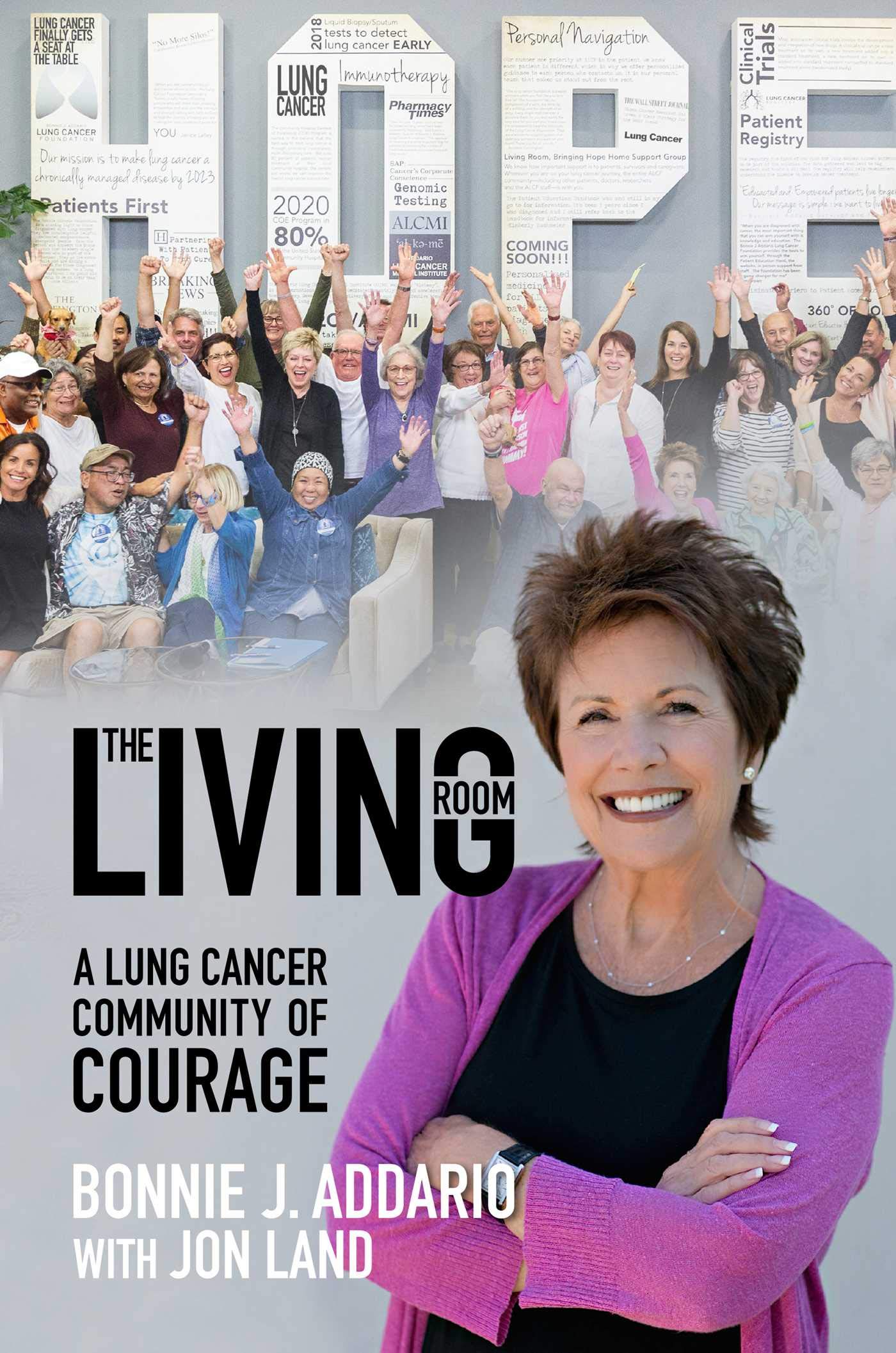
The Living Room support and education group was launched by Bonnie Addario and her family to help, nurture, and champion lung cancer patients and their caregivers. The group’s remit is a wide one. Indeed, as Addario’s daughter Danielle comments in the introduction to The Living Room: A Lung Cancer Community of Courage, the group provides “a safe place to meet and talk about everything from high-level things like advanced genomic testing to eating mashed potatoes because the drugs you’re taking are not letting you keep anything down.” Addario is herself a seventeen-year survivor of lung cancer as well as being the co-founder and chair of the GO2 Foundation for Lung Cancer. Her work as an activist on behalf of cancer patients prompted her to recognize the importance of community to those who are suffering, which led to the formation of the support group. Now, in The Living Room, Addario presents the stories of twenty lung cancer patients and survivors who have found ways to both live with the disease and thrive. They are difficult and emotive stories, but they are also uplifting and inspiring. Those featured in the book have found ways to overcome the obstacles put in front of them by cancer and to continue pursuing their dreams while fighting the disease.
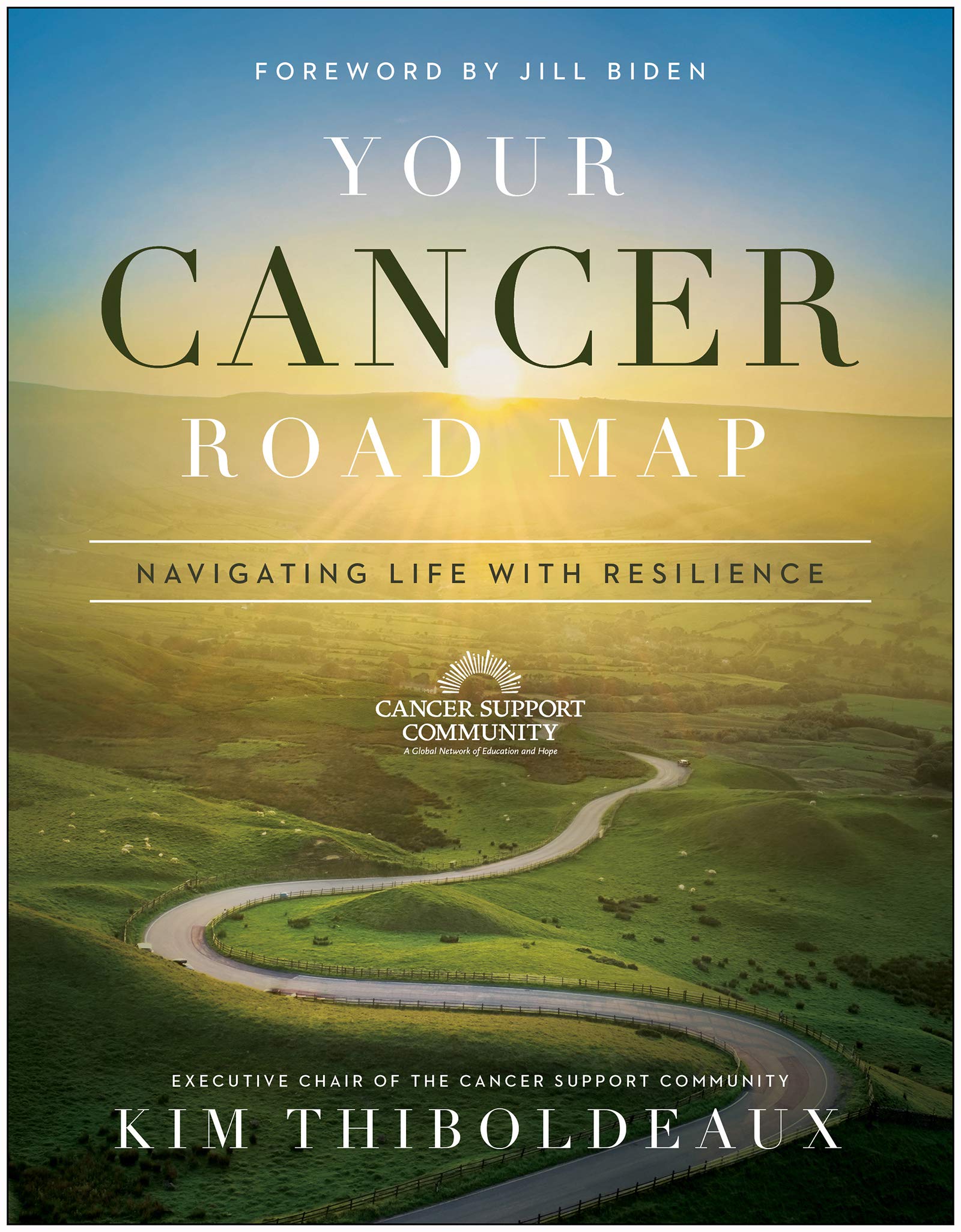
The Cancer Support Community (CSC) is a professionally led nonprofit network that provides cancer support to individuals worldwide. The organization is dedicated to ensuring that all those impacted by cancer, whether patients, relatives/friends, or caregivers, have the knowledge, help, and support they require on their cancer journey. Kim Thiboldeaux is the executive chair of the CSC and she has written Your Cancer Road Map: Navigating Life With Resilience to explain in a straightforward and user-friendly way all the physical, emotional, financial, and logistical challenges associated with a cancer diagnosis and the subsequent treatment. The book represents an almost exhaustive resource when it comes to the concerns and queries commonly raised by cancer patients, including how to choose from among treatment options, how to talk about fertility issues, and how to go about planning end-of-life care. Thiboldeaux aims to provide readers with all the tools necessary to fully participate in their care and to make informed decisions regarding various cancer-related matters. The book’s impact is enhanced by the inclusion of personal stories by some of those, both celebrities and everyday folks, whose lives have been touched by cancer.
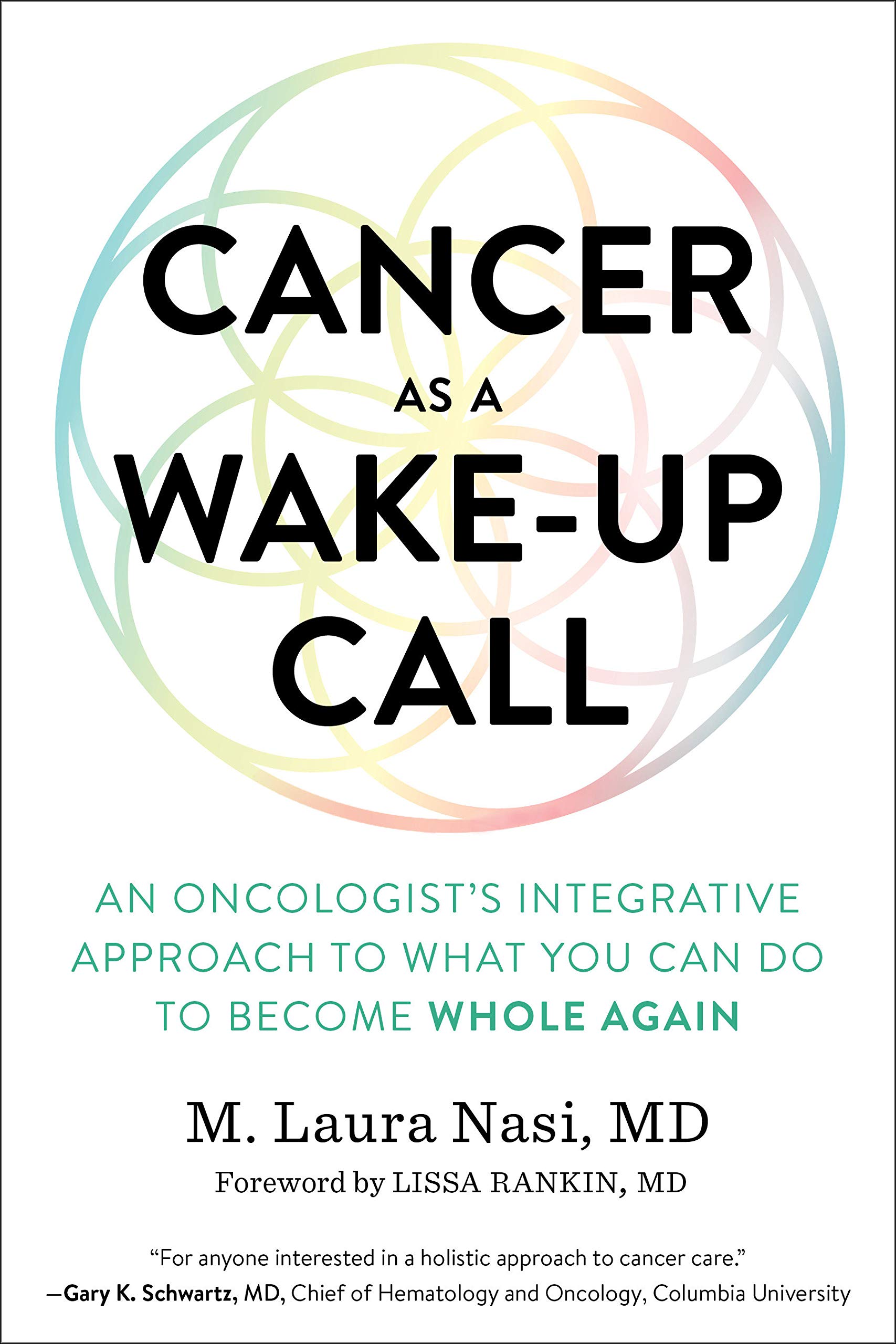
Dr. M. Laura Nasi, a specialist in integrative oncology, has over twenty-five years of experience working with cancer patients in hospitals around the world. Her medical education and her initial years as a doctor provided her with a strong theoretical understanding of cancer and other diseases as well as extensive practical experience of conventional treatment modalities. However, the realization that medical developments depend too heavily on economic concerns and that her own view of cancer treatment, which was fostered by her traditional medical education and training, was overly narrow prompted her to pursue a more holistic approach. In Cancer as a Wake-Up Call, Nasi explains how she sought to integrate the Eastern spiritual worlds that fascinated her with the Western approach to cancer treatment that predominated in the hospitals in which she worked. As part of her desire to understand the disease process, she chose to focus on the cancer patient as a whole (mind, body, and spirit), rather than solely on the physical manifestations of the disease. In the book, Nasi details the various spiritual techniques, such as meditation and visualization, that she has found to benefit cancer patients alongside more conventional therapies.
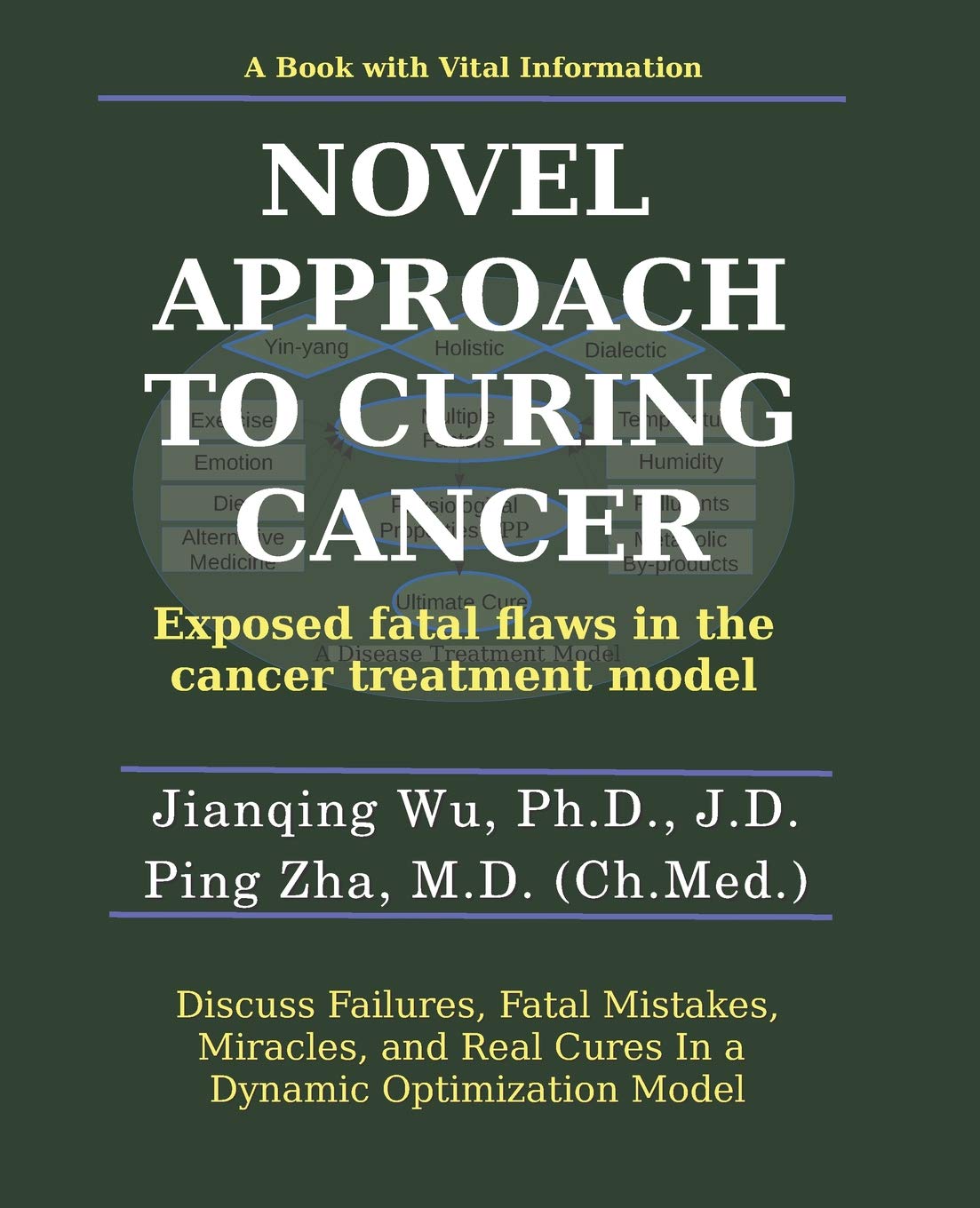
In Novel Approach to Curing Cancer, Jianqing Wu and Ping Zha detail a new methodology for treating all kinds of cancers. Starting from the two traditional pillars of cancer treatment, that is, the use of drugs and the basic treatment model, the authors suggest that so long as anti-cancer drugs have side effects and have to be administered periodically, they cannot be considered true cures. The idea is that no drug can destroy all kinds of cancer cells, and further, that cancer cells reproduce so quickly that any gaps in treatment allow them to take hold once again. The stories of various celebrities who died as a result of cancer are used to illustrate this idea. The authors suggest that the only way to truly overcome cancer is to understand three key factors: speed, number, and multiplication. They base their methodology on traditional Chinese medicine, modern disease theories, recent medical discoveries, and stories of people’s miraculous recoveries from cancer. As such, the book makes for interesting reading, although it is more geared toward the cancer researcher’s perspective than the cancer patient’s experience. It could be a useful and informative book for those looking to expand their theoretical understanding of the different approaches to treating cancer.
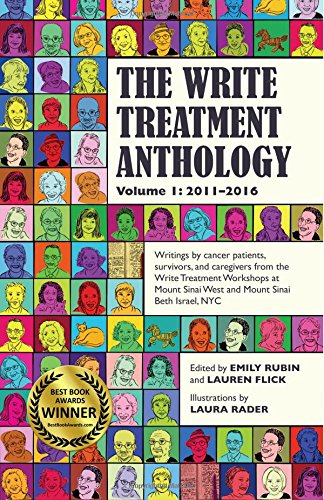
Emily Rubin, herself a cancer survivor, runs weekly creative writing workshops for cancer patients, survivors, and caregivers at the Mount Sinai Hospitals in New York City. During the workshops, Rubin makes use of writing prompts, photographs, and inspirational quotes to inspire attendees’ writing, and while some do opt to write about their cancer diagnosis and treatment, many choose to let their creativity flow far more freely and imagine things far beyond the world of cancer. The people who participate in the writing workshops are a diverse bunch, with varying lives, beliefs, and experiences, and their writings reflect that diversity. The Write Treatment Anthology Volume I 2011-2016 collects personal essays, stories, and poems written by twenty-three people who attended Rubin’s workshops during the relevant period, and taken together, it is a hugely inspiring body of work. The tales they tell range from the hilarious to the tragic, the sublime to the ridiculous, and there are more than a few thought-provoking moments.


Recent Comments